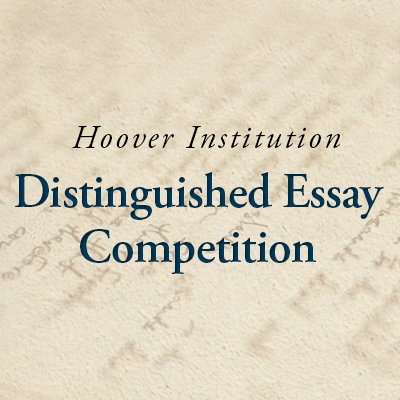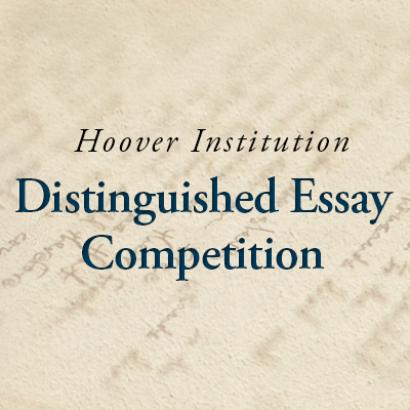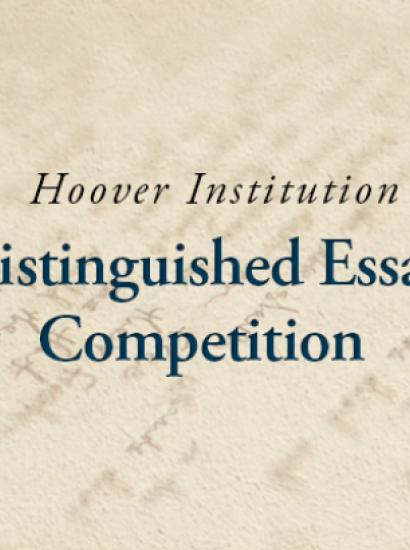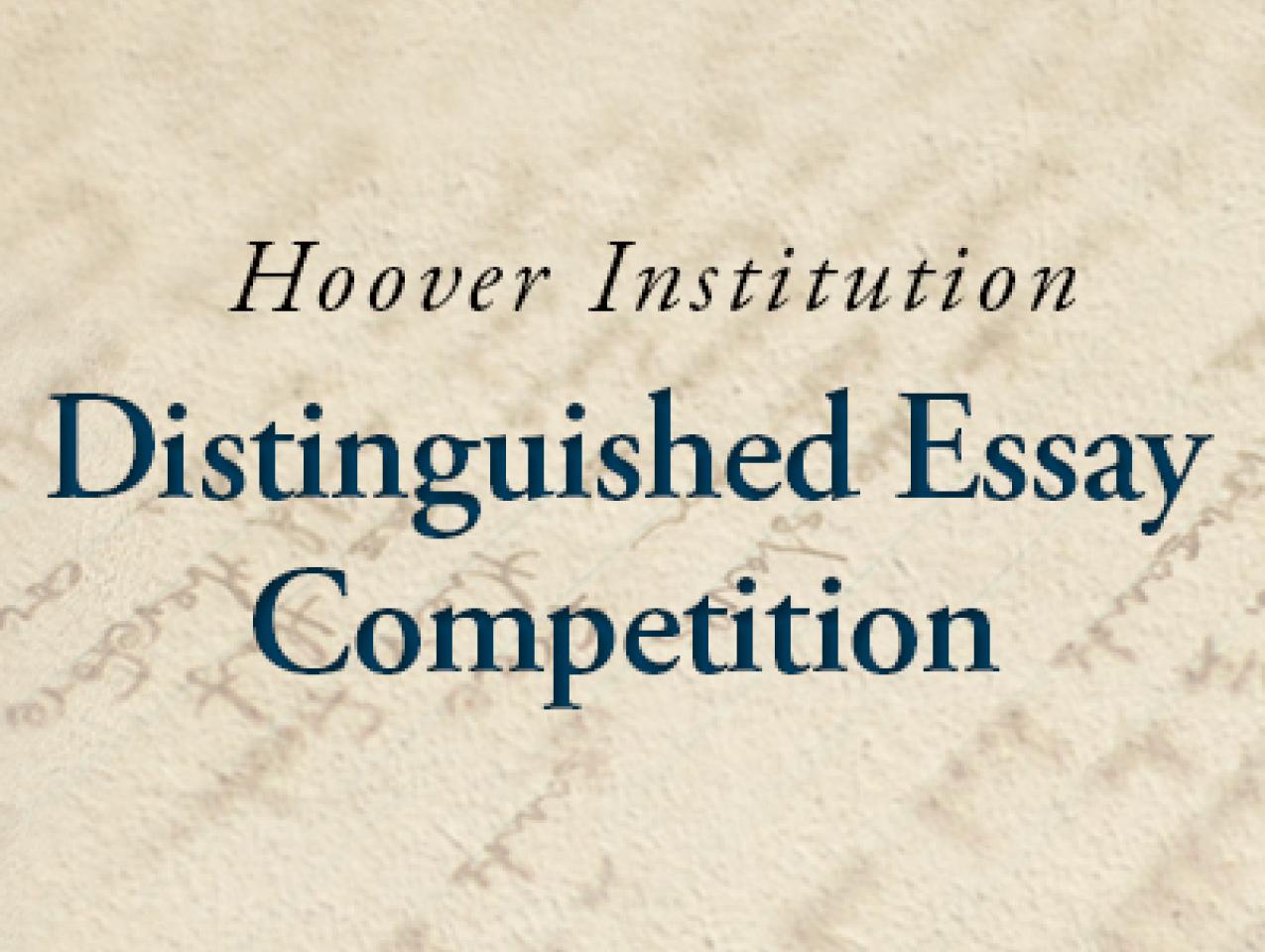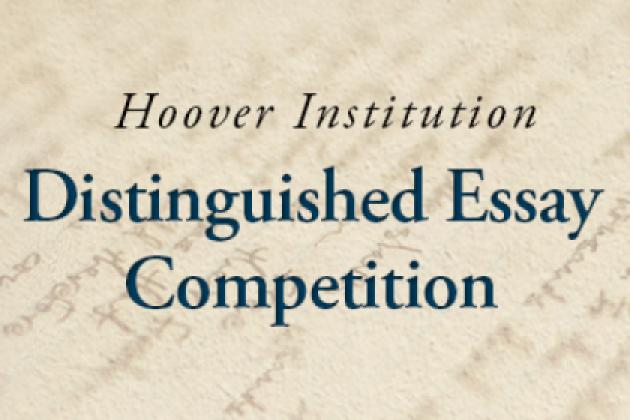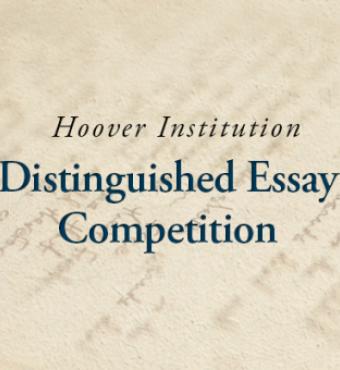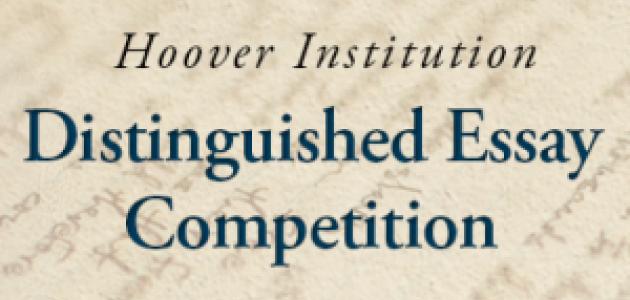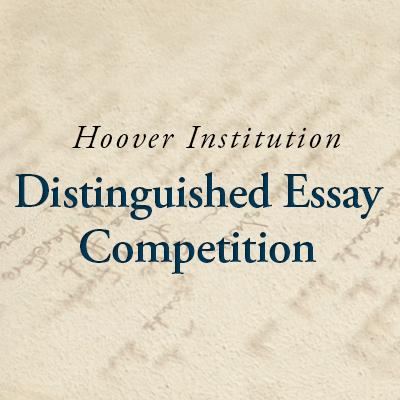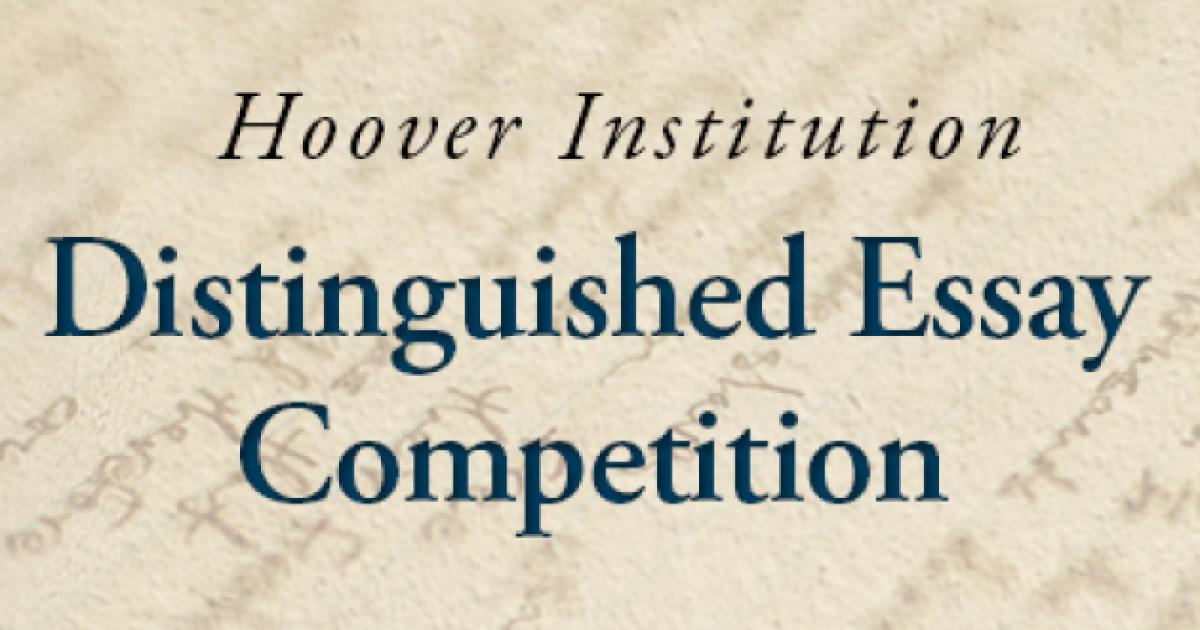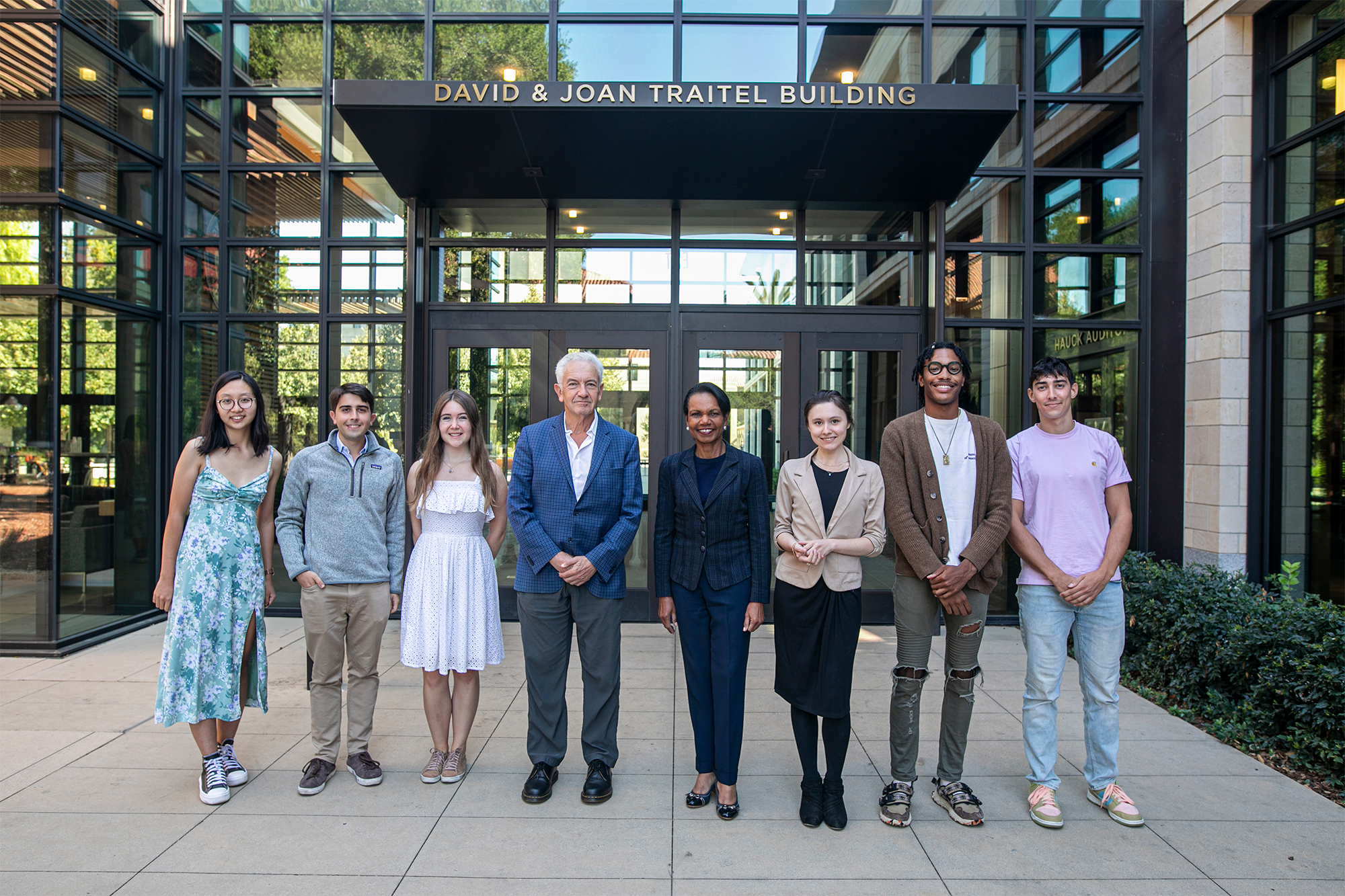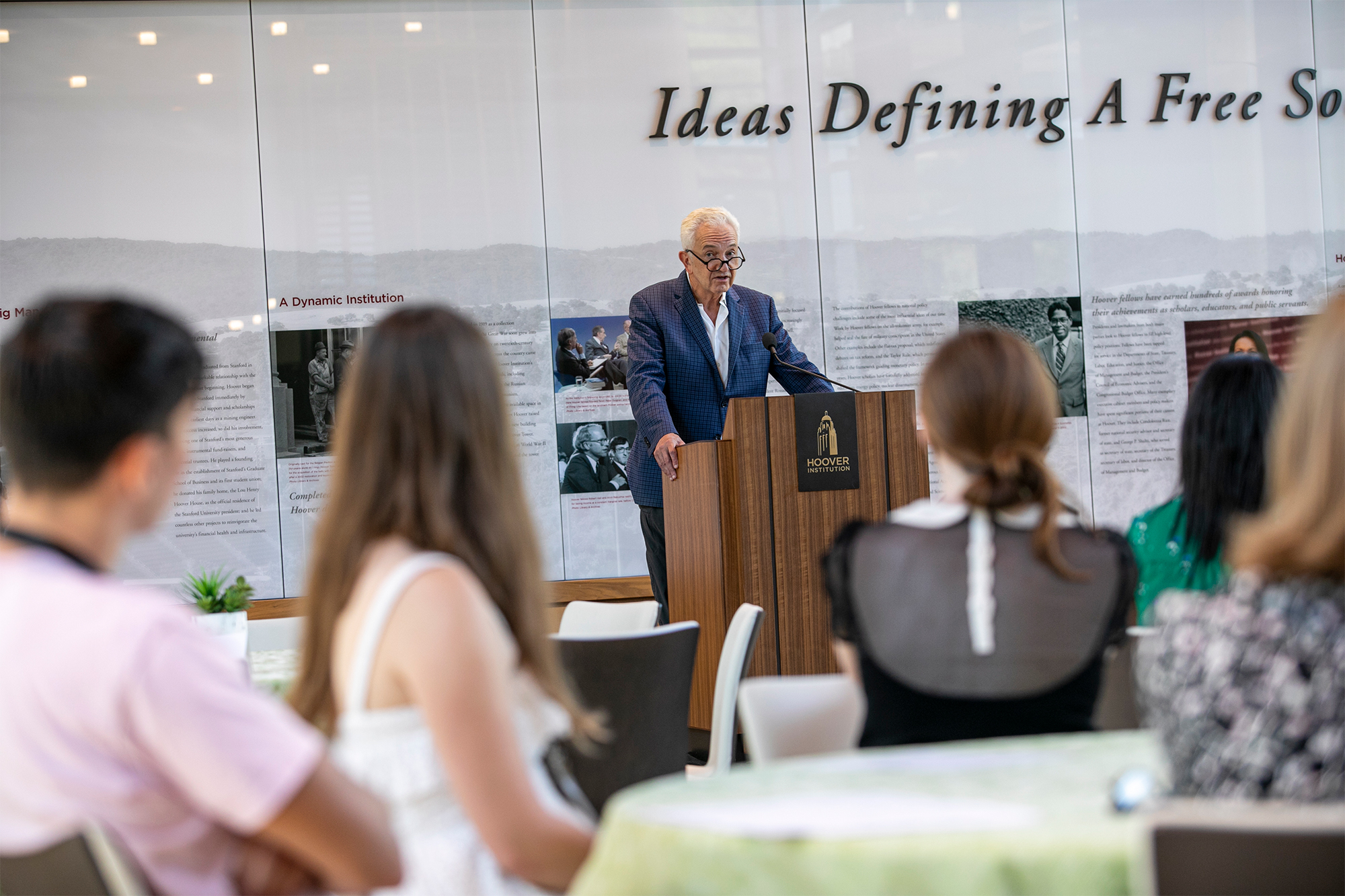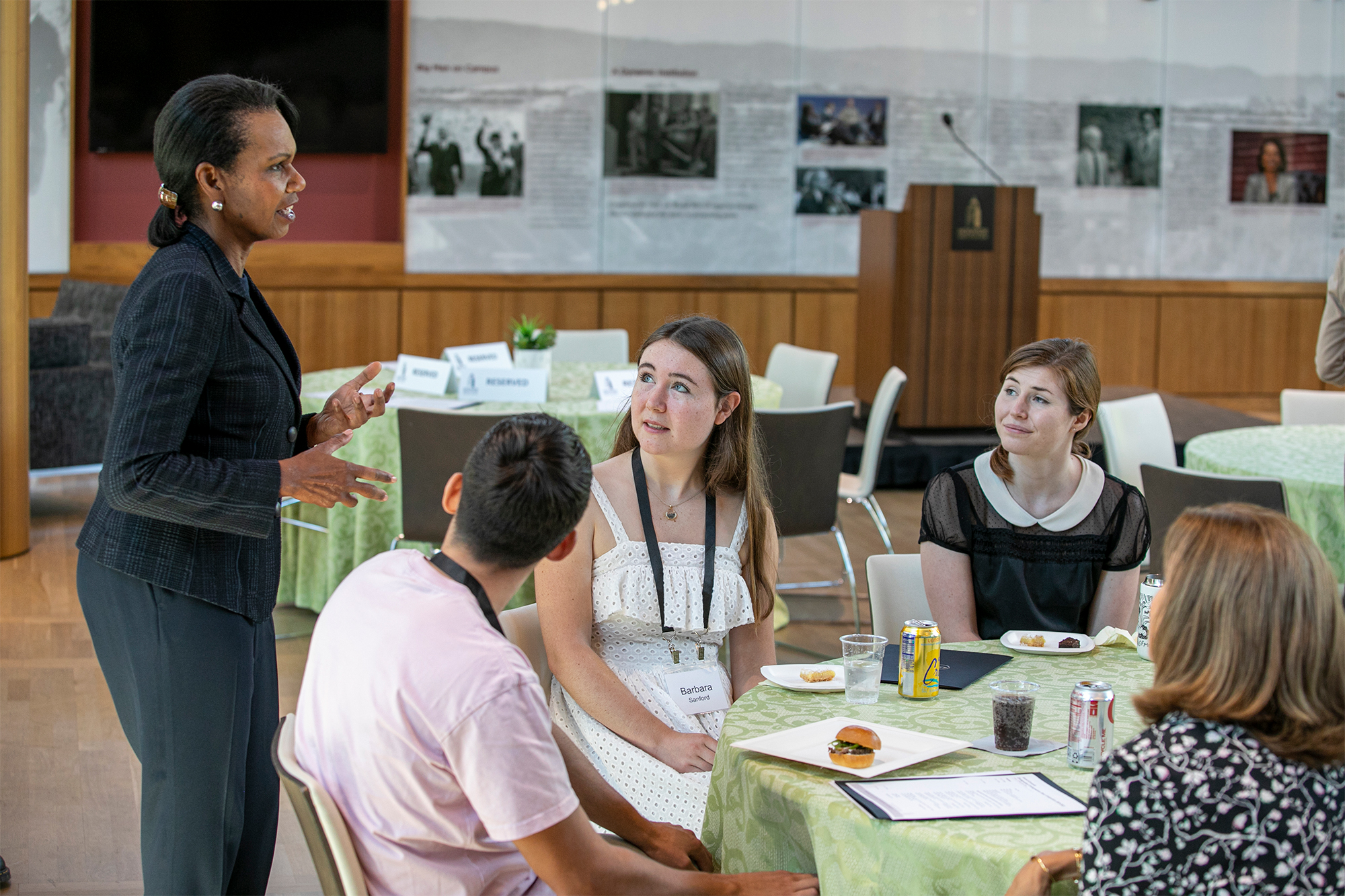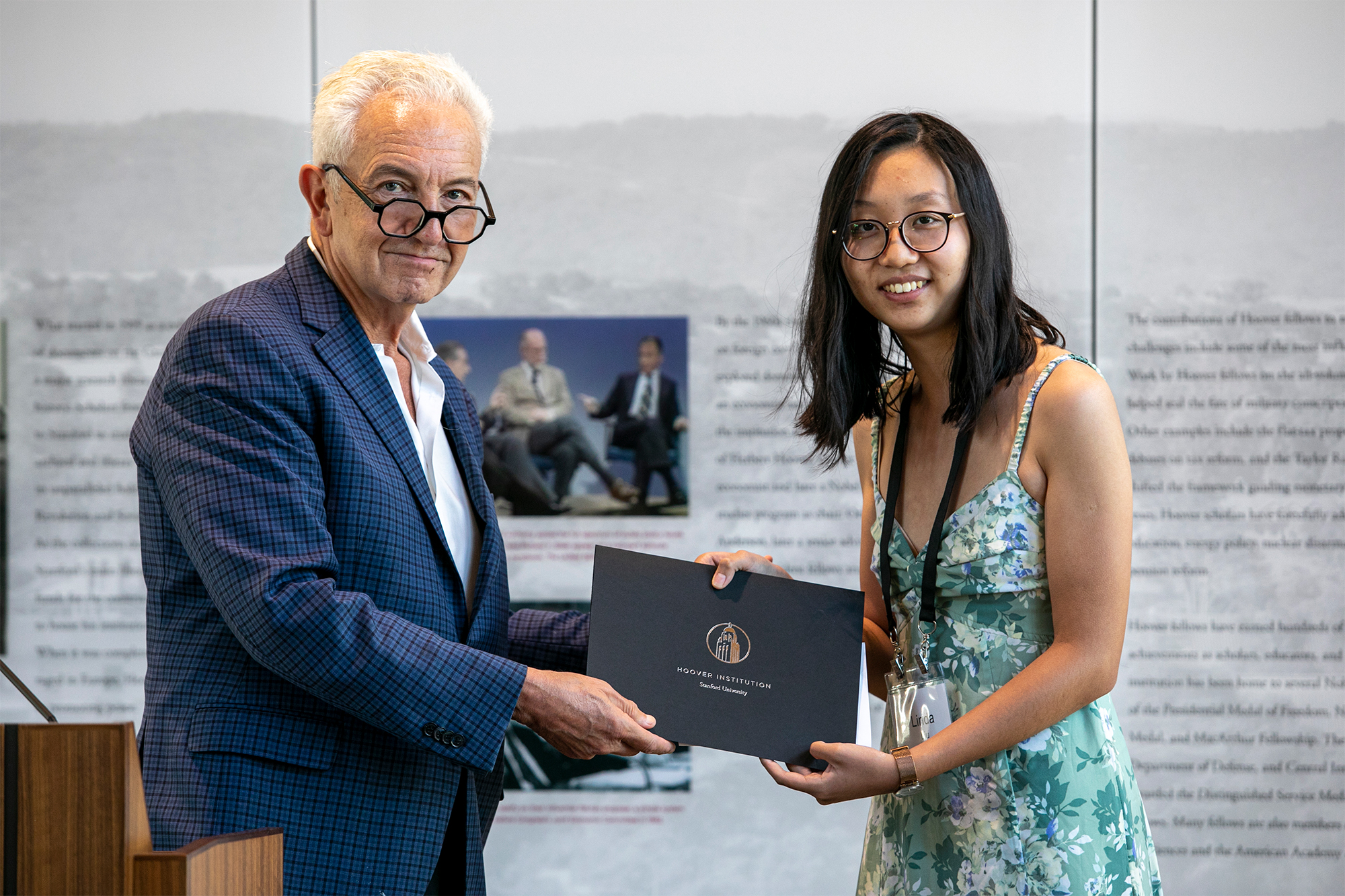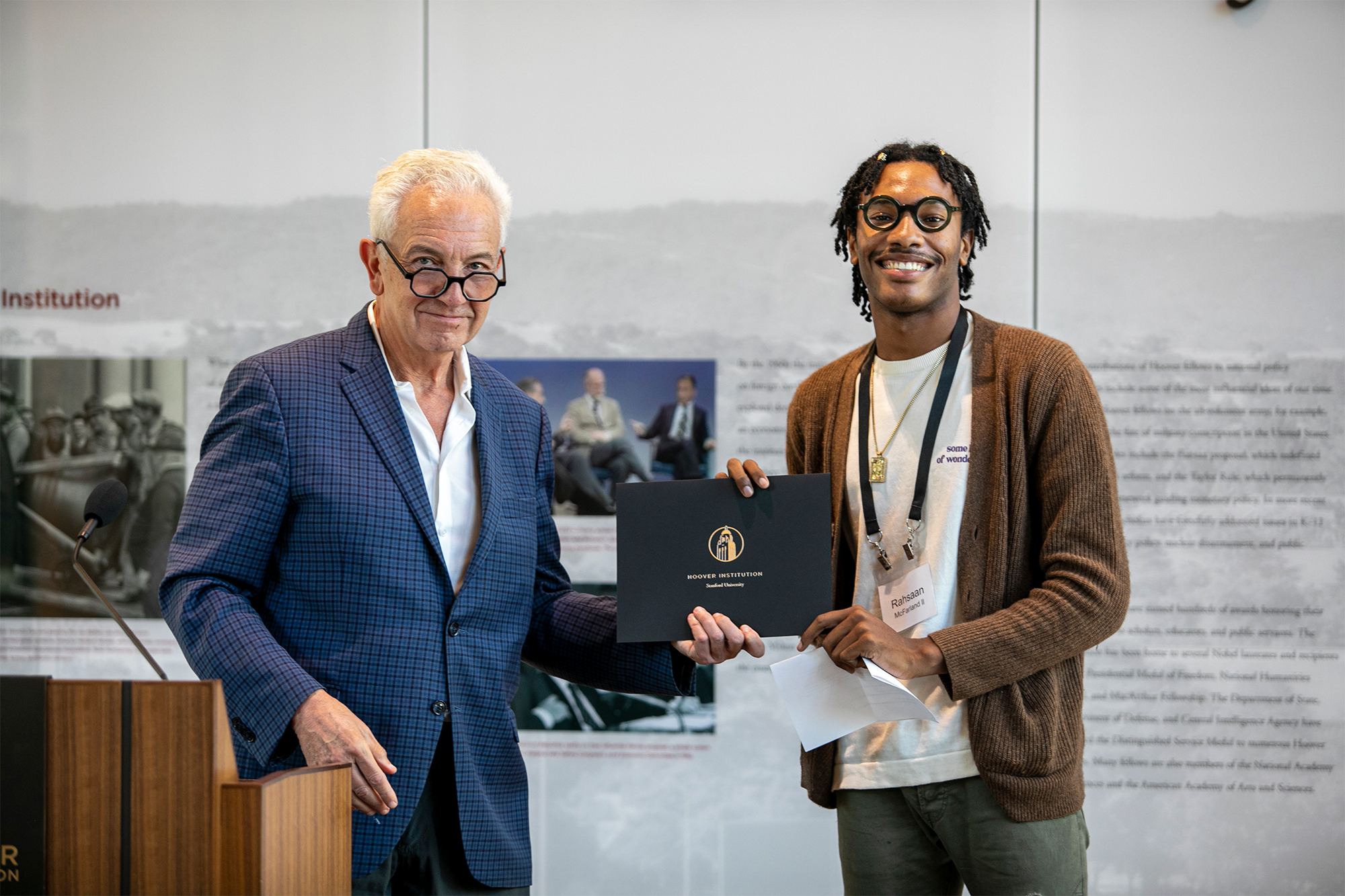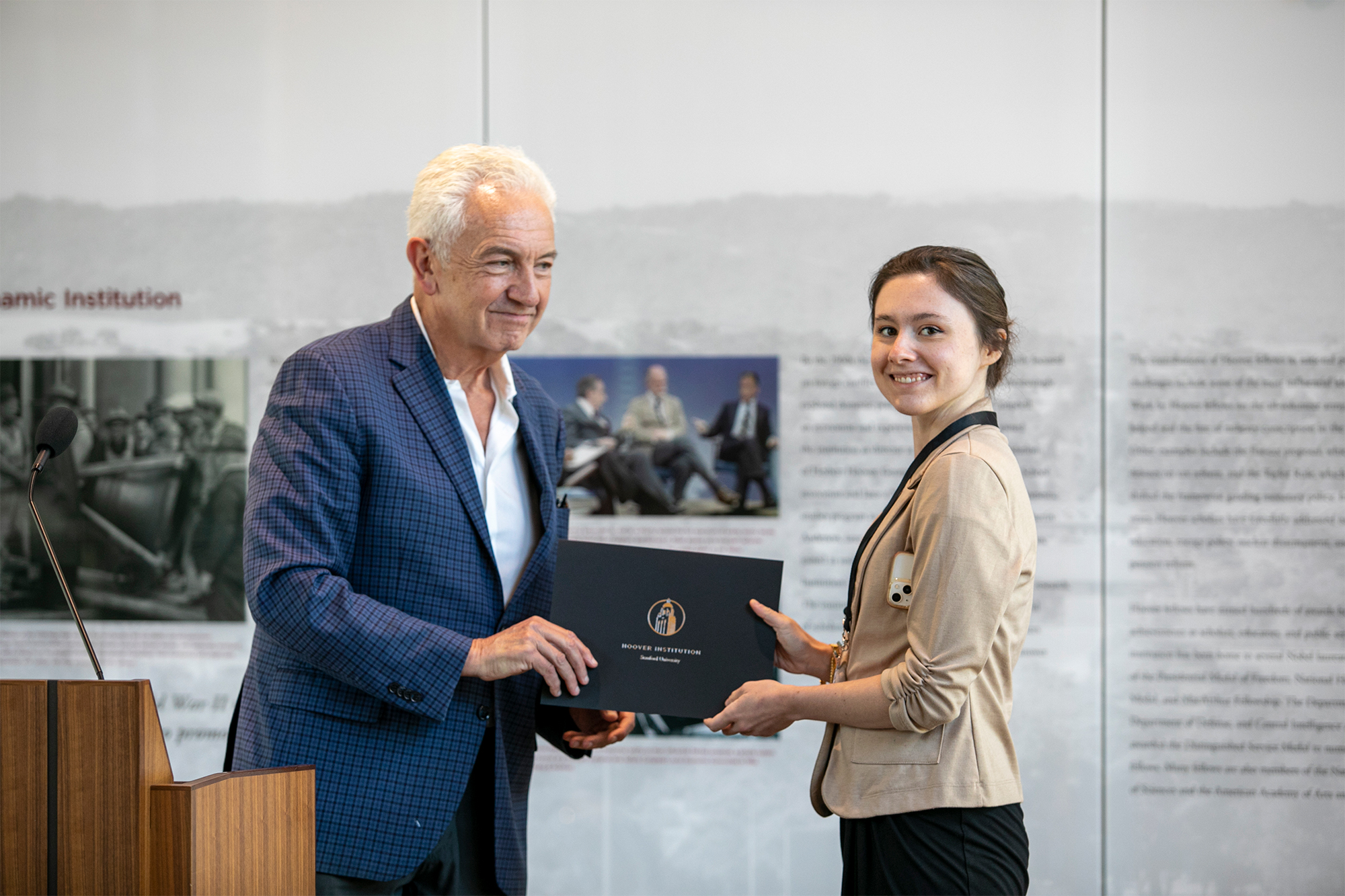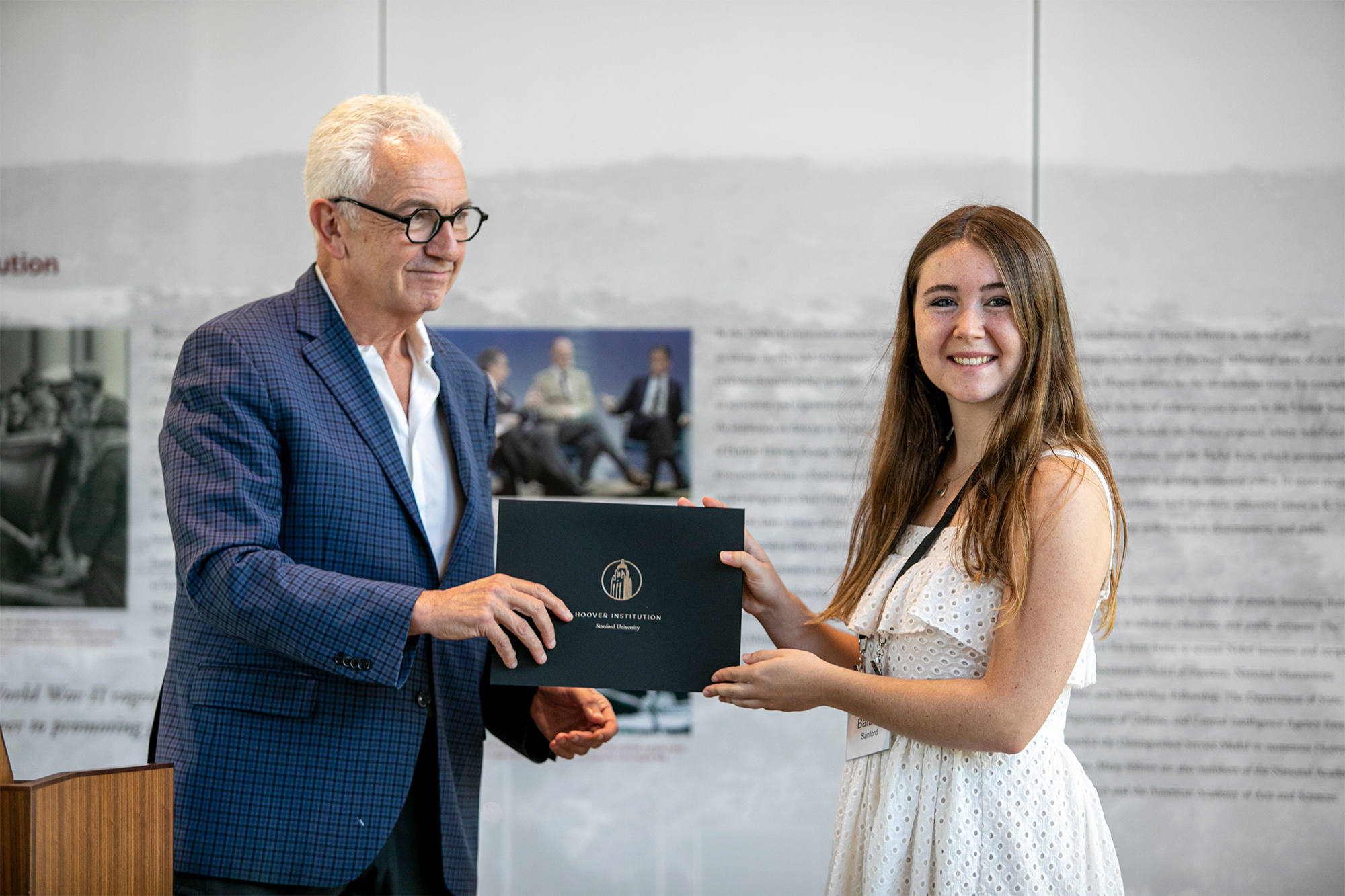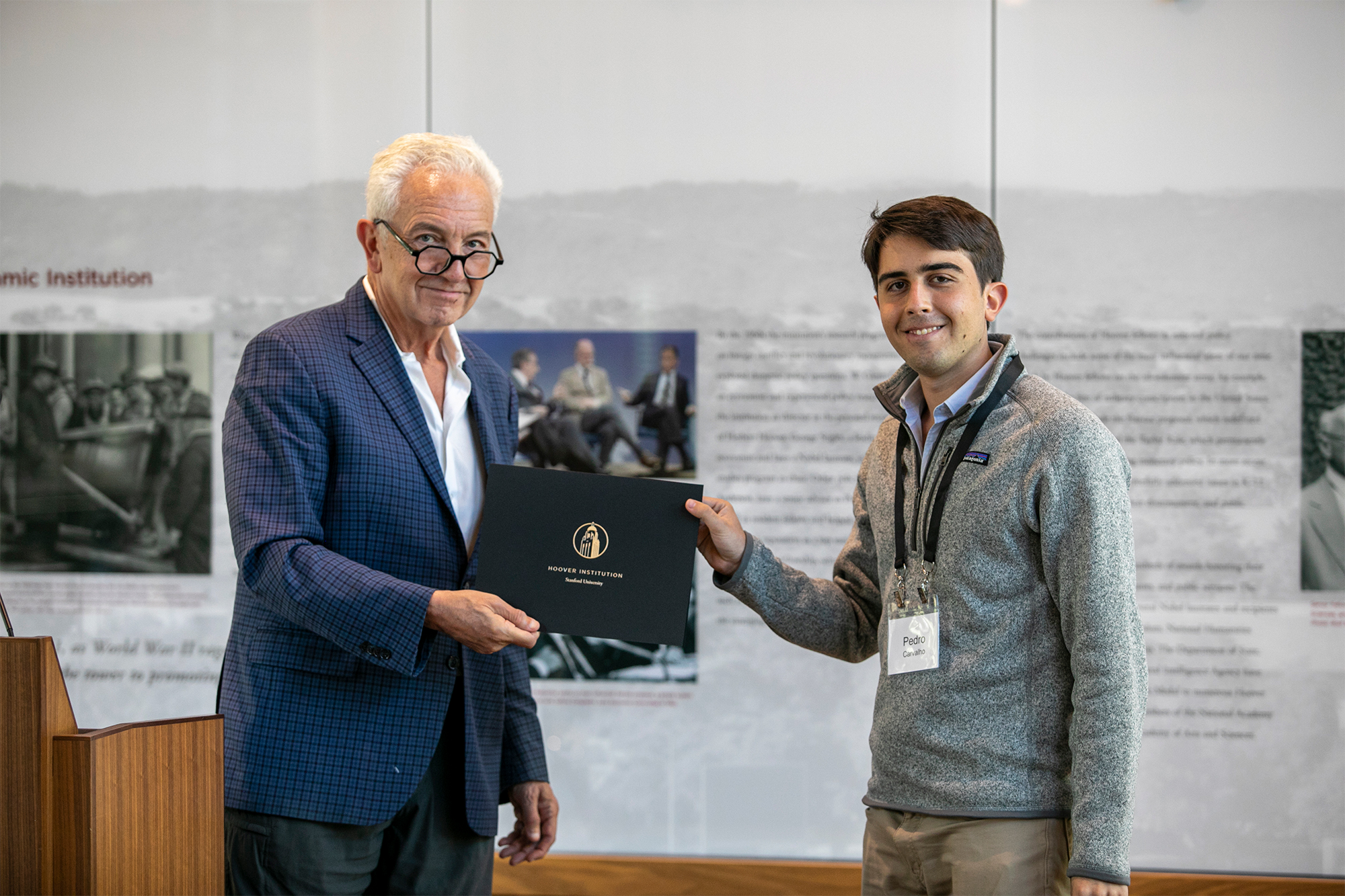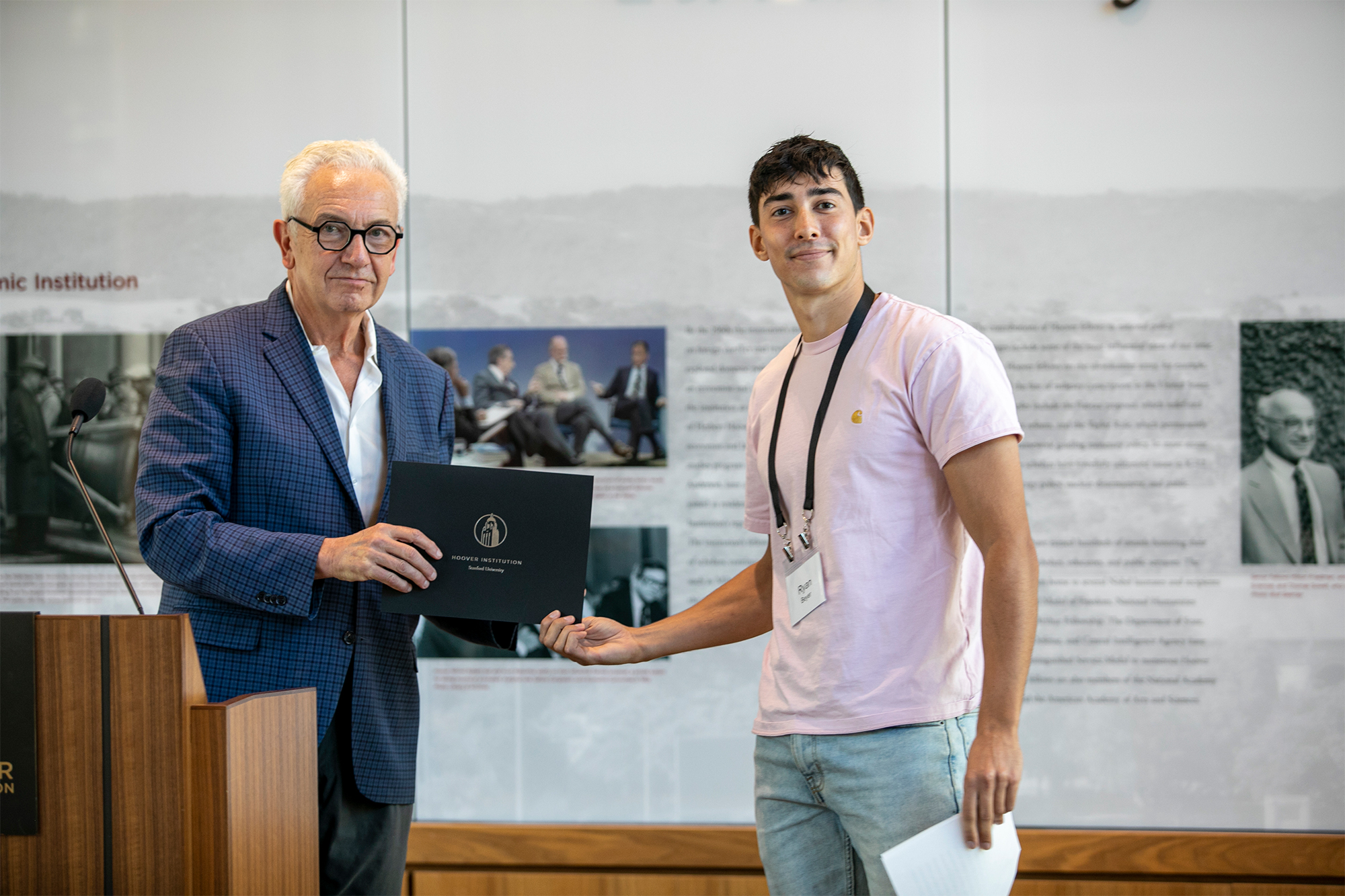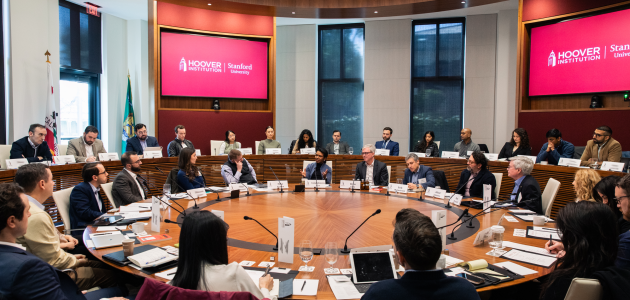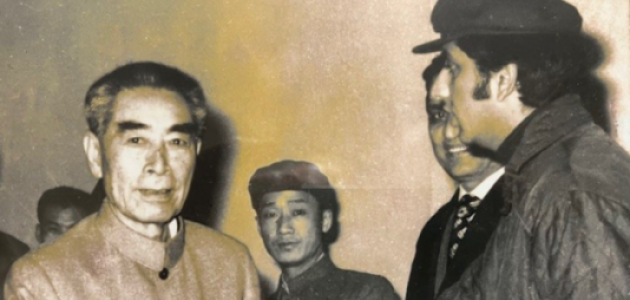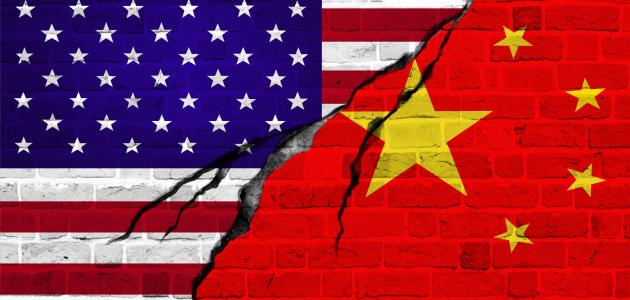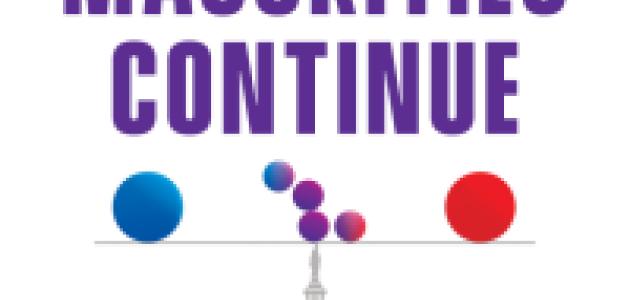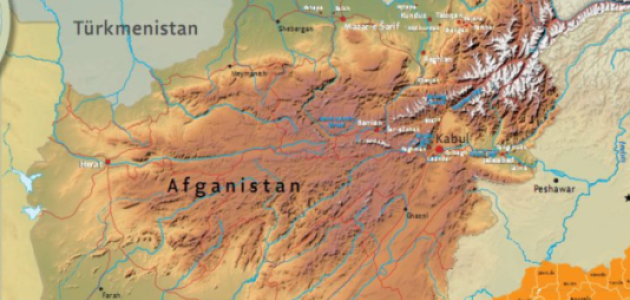Hoover Institution (Stanford, CA) – The Hoover Institution hosted the winners of its first Distinguished Undergraduate Essay Competition during a ceremony in the Traitel Building’s welcoming pavilion on the afternoon of Tuesday, October 11.
Those recognized were among high-achieving Stanford undergraduate students of various disciplines who were encouraged to submit papers written within the past year that addressed topics related to the integrity of democratic values and institutions and the impact of specific policies on the ideal of individual freedom.
Those recognized included four upper-division students and three first-year students. The event included remarks by the competition’s chair and organizer, Hoover senior fellow and Stanford humanities professor Russell Berman, who acknowledged Hoover colleagues and Stanford educators Norman Naimark and Caroline Hoxby for serving on the committee that evaluated and judged the papers.
Hoover Institution director Condoleezza Rice also provided welcoming remarks to the students, underlining Hoover’s mission as one of not just producing scholarly research but transferring the knowledge it imparts to new generations of students through Hoover’s connection to Stanford University.
During the ceremony, recipients were given the opportunity to summarize their winning essays before an audience of Hoover scholars and staff as well as invited guests including family, friends and teachers of the students. The winners and their topics were as follows:
Upper-Division Prize Winners
Nina Iskandarsjach (’23): Although Iskandarsjach could not attend the ceremony, Berman explained that her essay explores how Iranian leadership’s coronavirus conspiracy theories contributed to the disastrous response to the pandemic. She underscores that this experience in Iran has revealed fundamental flaws of authoritarian governance, which is held together by false narratives and is more fragile than it appears on the outside.
Lindsey Anne Williams (’23): Lindsey Williams’s essay demonstrates how the framers of the US Constitution envisioned constraining the US Supreme Court and lower courts via “the political question doctrine,” according to which judges should not hear cases that they find raise political issues more properly addressed by the legislative and executive branches. Williams explains that the judiciary exists to preserve a framework of continuity in which citizens practice self-government. Thus, she asserts, the courts should be bound by precedent and a tradition of restraint, which has historically held it back from interference in the democratic process.
First-year Prize Winners
Rahsaan McFarland II (’25): Rahsaan McFarland wrote about the migration of African Americans from the poor conditions of the Eastern and Southern United States to the San Francisco Bay Area in the twentieth century. He describes their aspirations for a better life in this voyage, as well as the discrimination that they continued to face after they had settled in Northern California.
Yuanlin “Linda” Yu (’25): Yuanlin Yu provided an analysis of the musical expression conveyed by Russian composer Dimitri Shostakovich in his Fifth Symphony. Yu examined the perspective that the composition was meant to symbolize the Soviet people’s protest of the governing regime of Joseph Stalin, but she maintained that the messages of Shostakovich’s composition are more nuanced.
Honorable Mention
Pedro Carvalho (’23): Carvalho’s essay explains how widespread credit card acceptance is harming small businesses. The competition among major credit card companies in convincing banks to issue their cards has resulted in increased swipe fees, which are ultimately refunded to these banks and absorbed by vendors, including small businesses operating on narrow margins. Carvalho argues that policy makers need to address the negative impacts of swipe fees, as small businesses generate approximately two-thirds of jobs in the European Union and half of individual member countries’ GDP.
Barbara Sanford (’23): Barbara Sanford’s essay explores the career of Petras Daužvardis, the consul of Lithuania in Chicago from 1937 until his death in 1971. From primary materials in the Hoover Library & Archives, Sanford explains how Daužvardis represented his country to the United States for over thirty years, during most of which time Lithuania was under Soviet occupation. Daužvardis built goodwill with his American hosts, but he was also very firm in standing up for the sovereignty of Lithuania. As an example, Sanford says that Daužvardis would call on newspapers across the United States to correct maps if they illustrated that his country was part of the territory of the Soviet Union.
Ryan Beyer (’25): Ryan Beyer’s essay encompasses the destructive impact of the Khmer Rouge on Cambodian society starting in the 1970s. Using source material from the Hoover Institution’s Library & Archives, he argues that the rise of the Khmer Rouge can be traced back to the American intervention in Cambodia in the early 1970s, which destabilized that country and resulted in the collapse of the government led by Prince Norodom Sinahouk. Beyer explains how Khmer leader Pol Pot was able to achieve sufficient political support to establish a tyranny that systematically killed millions of his own citizens.
“It’s an interesting afternoon that begins with Shostakovich and ends up with Visa cards, but the common denominator is this interest in freedom,” Berman said in his final remarks, adding, “Whether it is Lithuania, the Bay Area, Cambodia, or anywhere around the world, these are the values that one has an obligation pursue, especially through effective communication: Good writing is a building block of democracy." He concluded the ceremony addressing the students, "Wherever your career paths take you, I hope that you will remember this time here at Hoover and at Stanford and retain the lesson that it is vital to pursue freedom with the passion and commitment that your essays exemplify .”







